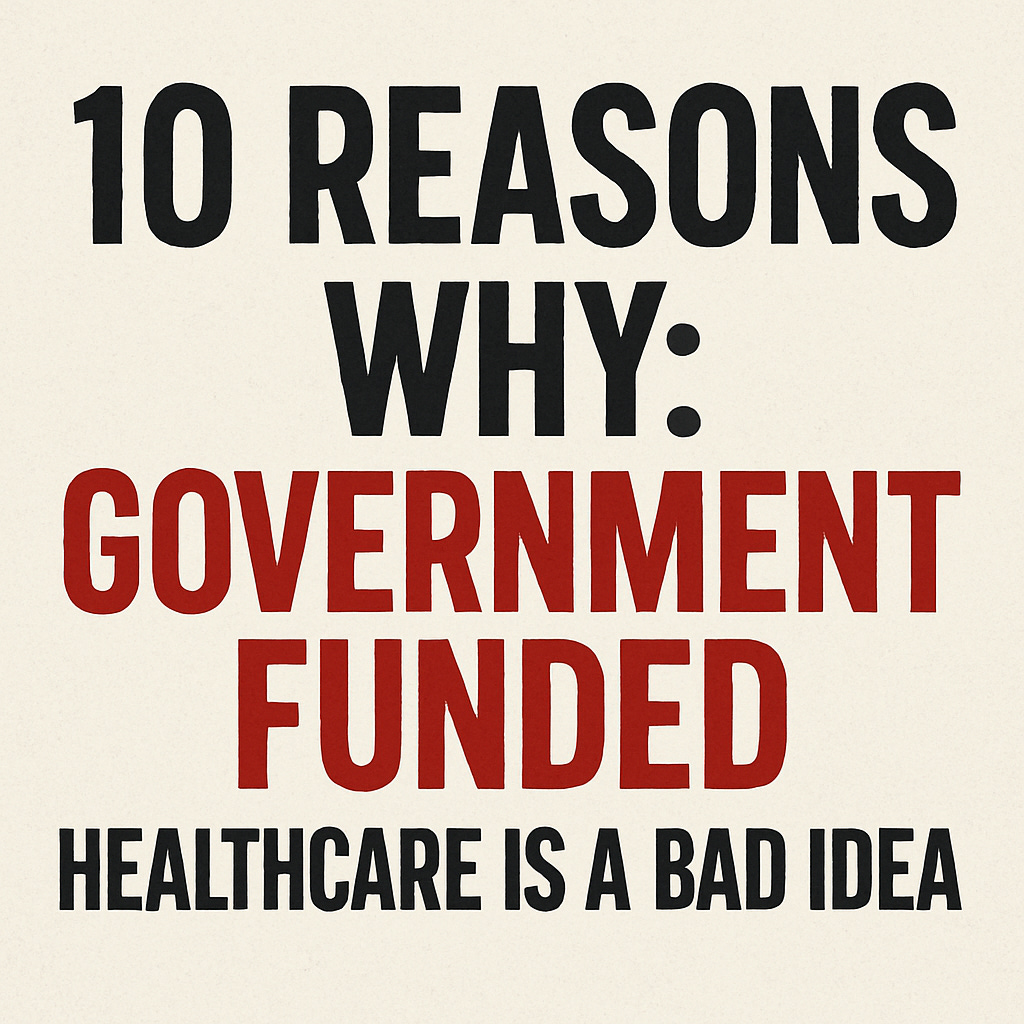Top Ten Reasons Why Government-Funded Healthcare Is A Bad Idea
Use the reasons below that make the most sense to you to make the case to people you know about why they should oppose government-funded healthcare.
Here are the top ten reasons government-funded healthcare is a bad idea…
Increased Costs and Taxes: Government-funded healthcare often leads to higher taxes or reallocating public funds, straining middle- and working-class budgets. For example, studies estimate Medicare for All could cost $32 trillion over a decade, requiring significant tax hikes.
Longer Wait Times: Centralized systems, like those in some single-payer countries (e.g., Canada), result in longer wait times for non-emergency procedures, delaying treatment. Canada's median wait for elective surgery was 27 weeks in 2022.
Less Innovation: Sweeping government involvement would likely stifle medical innovation by deterring private R&D investment. The U.S., a market-based system, leads the world in drug development, having developed 44% of the world's new medicines from 2010-2020.
Bureaucratic Inefficiency: Government-run systems can be beset by red tape, slow decision-making, and mismanagement, lowering the quality of care. The Veterans Health Administration, for instance, was dogged by scandals of delayed care due to bureaucratic inefficiencies.
Provider Shortages: Increased demand from universal coverage, without a matching supply, puts pressure on providers. Staff shortages in the UK's NHS led to 7.6 million hospital appointment waits in 2023, with 1 in 7 posts vacant.
Limited Patient Choice: Government plans also restrict providers', hospitals', or treatment options to control costs, restricting patient choice. Under some single-payer plans, patients cannot opt for private care without significant out-of-pocket expenses.
Overuse of Services: Low- or no-cost healthcare can lead to overutilization of unnecessary services and clog up systems. Studies show insured patients in Medicaid expansion states increased ER visits for non-emergency conditions by 40%.
Economic Drag: runaway government spending on healthcare can crowd out other priorities (e.g., education, infrastructure), slowing economic growth. In 2023, U.S. federal health spending was 17% of GDP, which will grow under expanded programs.
Quality Decline: cutting government program budgets can lower the quality of care, as in some Medicaid programs where reimbursement rates are 50-70% of private insurance, which results in fewer providers accepting patients.
Dependency Culture: Universal healthcare can promote government dependency, discouraging personal responsibility for health or private savings. Critics argue this shifts responsibility from the individual to the government, eroding self-reliance.



